If you’re thinking about upgrading your furnace, you’ve likely heard many different things regarding switching from heating oil to propane. You should be very carful about making this decision. While it sounds like a good idea, it could be very expensive down the line.
In this article, we break down the reasons why companies want you to switch to propane.
Both Delivered Fuels
Both Propane and Heating Oil are considered “Delivered Fuels“. While electricity and natural gases come automatically, oil and propane can only be received by a delivery truck.
It is important to think this through, because you must be able to maintain a consistent supply of either fuel during the winter months. While natural gas and electricity are more naturally persistent, heating oil and propane are not. If you are not careful, you can run out of either fuel.
The two best ways to order oil and propane are on a “Will-Call” or “Automatic Delivery” basis. Will-Call basis orders are more cost-effective while automatic delivery comes on a more premium price. However, there is room for human error when it comes to Will-Call. Try not to forget to order! You’ll run out of oil and wake up to a cold house in the morning! Oil dealers will usually charge an additional 50 cents per gallon for Automatic Delivery. Despite that, some debate that it is worth the peace of mind.
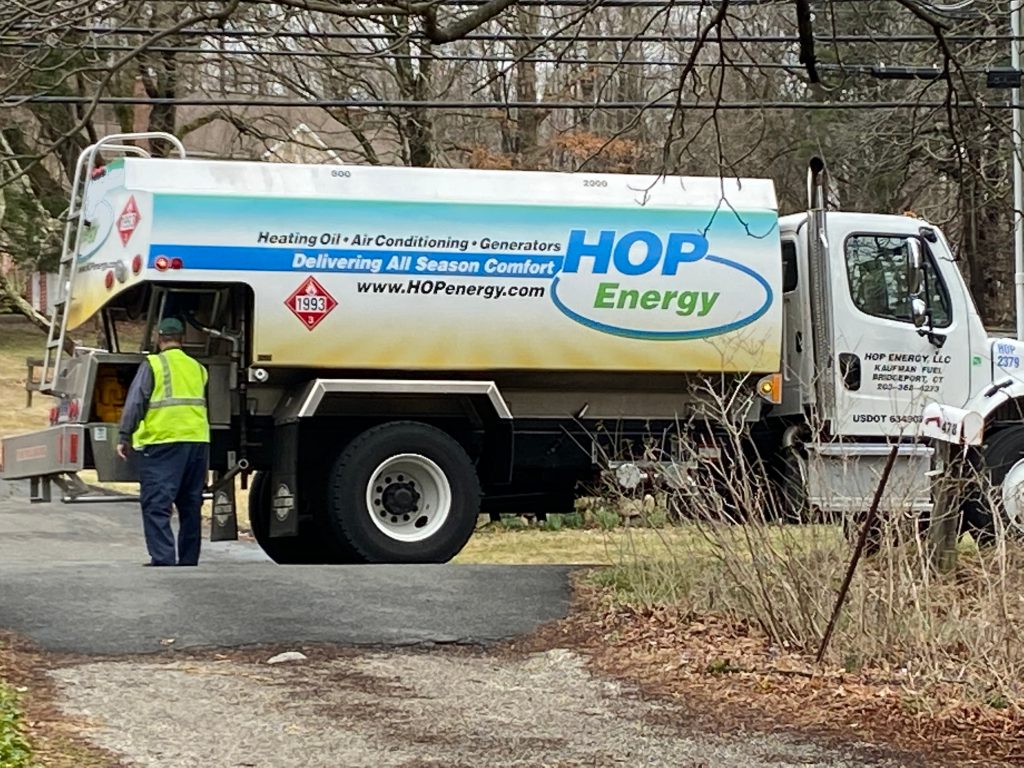
The Difference between Propane and Heating Oil Storage Tanks
Natural gas is transported through pipelines that are mapped from the streets into your homes. However, for fuel companies they have to deliver oil and propane to homes that request it. Fuel tanks can store oil or propane for months on end to ensure that the homes remain heated.
Heating oil tanks come in three different varieties. They are listed here:
Indoor Tanks: These tanks are always above ground and are the most preferable. They are usually stored in basements, crawl spaces or garages and are never exposed to the outside elements.
Outdoor Tanks: These tanks are usually the second most preferable. Despite being outside, you can easily access and inspect the tank when needed! However, these tanks often will need to be replaced sooner than indoor tanks, due to being exposed to the elements.
Underground Tanks: These tanks are the least preferable. This is because there is no way to access the tank or determine how many gallons of oil are in the tank. The only way to be able to tell how many gallons are in the tank is by stick measuring the tank. Additionally, there is no way to know if your tank is leaking. If your underground tank is leaking, it could be very expensive to replace or fix.
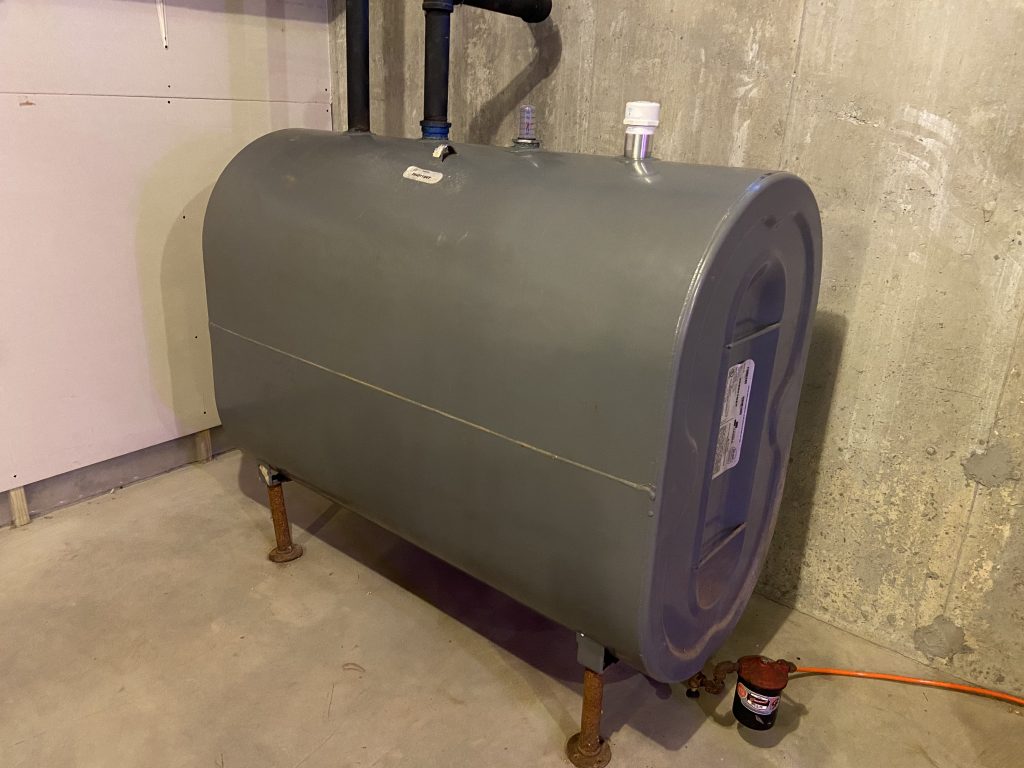
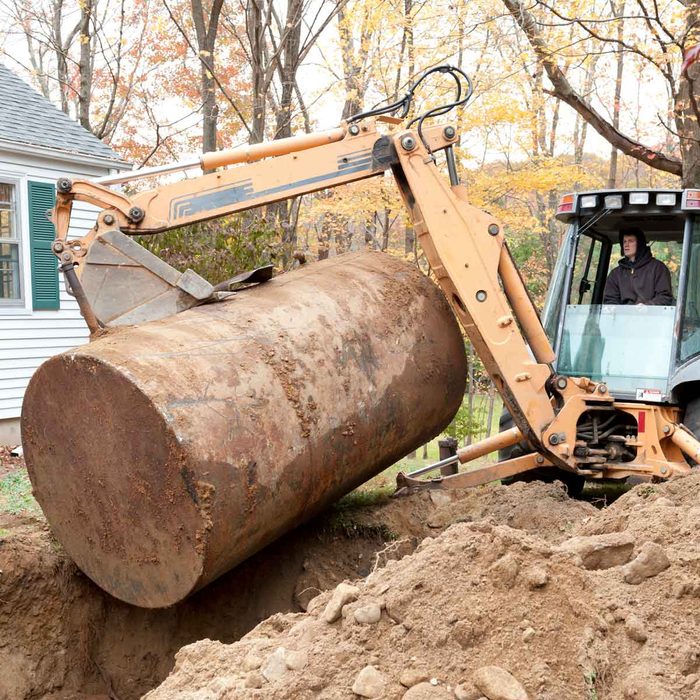
Despite heating oil tanks having more tank options, propane tanks only have two styles:
Outdoor Tanks: The most common style for propane tanks is above ground. They always must be located away from a residence in case of a leak. You will usually see them in someone’s yard. These are usually an eyesore to look at.
Underground Tanks: These types of tanks are rare for propane. However, they are preferred because they are less exposed to the elements.
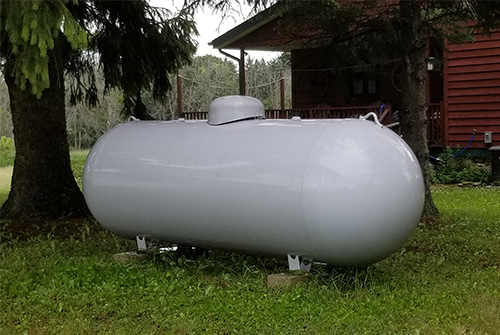
What are the Benefits of Propane Heating?
Propane itself is very versatile. It can fuel stoves, fire places, furnaces and much more! If you have a grill outside on your porch, then you likely use propane when you’re cooking some hamburgers and hotdogs! Propane prices are stable and tend to be cheaper than electric heating.
What are the Downsides of Propane?
The biggest problem with propane is that it offers a lack of flexibility. One important thing to note with propane is normally you are provided a propane tank by your propane dealer. This means that you cannot choose a different distributor to fill your tank. When you are speaking to a sales rep from a propane distributor they seem a little pushy, this is why.
Propane distributors make a large profit when they get you to switch from heating oil to propane. Additionally, when you are using a propane distributor, there are a lot of restrictions. Meaning that if you wanted to switch propane providers, you would need to buy your tank. Yes you heard me right, the propane distributors will require you to buy your tank if you wish to switch. Buying the tank could cost you several thousand dollars.
Another major downside to using propane heating, is that you can’t top off your tank if you run out of propane. This means that if you wanted to get some propane in an emergency situation, you wouldn’t be able to. You will then have to wait until your next scheduled delivery.
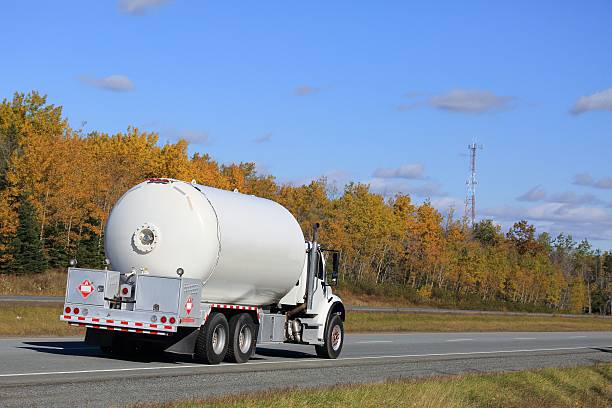
What are the Benefits of Heating Oil?
Heating oil burns VERY HOT. Due to how hot heating oil burns, you will get significantly more heat per gallon. Typically you will also get more heat out of a gallon of heating oil, compared to a gallon of propane.
A gallon of propane will produce an average of 91,500 BTUs (British Thermal Unit). Most propane tank equipment is only 95% efficient, which will only net you a total of 86,925 effective BTUs.
However, a gallon of heating out will produce 138,500 BTUs. Most heating oil equipment is 85% efficient, a gallon of heating oil will still net you a total of 117,725 effective BTUs.
Compared to heating oil, one gallon of propane will get you around 30% less heat production than one gallon of heating oil.
Additionally, with heating oil as a homeowner, YOU OWN your tank and oil. This allows you to be free and flexible when ordering oil. You’ll get the freedom to order any amount of oil at any given time. You’ll also be able to order from any dealer that you please and are not locked in to any one dealer. Having the ability to put diesel in your tank in the case of an emergency is crucial! You can’t do that with a propane tank! For more information on this subject, check out this article!
This still usually means that prices for heating oil will have a large variety. This is because heating oil has a more competitive market than propane. If you use our website FuelSnap, you will be able to compare prices from local dealers in your area and find the best price for you!
Including external technology such as the Smart Oil Gauge, you’ll be able to keep an eye on your tank’s level! It will be able to monitor your level and usage through the app! It will even send you alerts notifying you when to order!

What are the Downsides of Heating Oil?
Heating Oil smells. It has a very profound odor that is very easy to pick up on. You will likely smell this if your oil tank leaks. An occurrence of this is rare, but it still happens. That being said, inspect your above-ground tank regularly to prevent this from happening.
Additionally, heating oil is more vulnerable to global price changes. Back in 2022 when Russia invaded Ukraine, worldwide oil prices skyrocketed. While oil prices went up substantially, propane prices where unaffected. However, when COVID-19 happened, oil prices where at an all time low. Sometimes the prices where below $1 per gallon, while propane prices remained the same.
Conclusion:
Propane is fantastic for many things such as cooking, fireplaces and generators. However, it is far more expensive when comparing it to heating oil in the long run. Heating oil is far more inexpensive in the long term.
Do not let a pushy salesman tell you what to do with your money. If they insist on you switching over, do not fall so easily. Remember that if you switch over to propane, you will have far less freedom when it comes to heating your home.
Heating oil should be used as your primary source of home heating. Propane should be used to run your fireplace, grill, stove and other home appliances that would require it. Using it for home heating will only drain your pockets more.
Happy Heating,
Hunter



